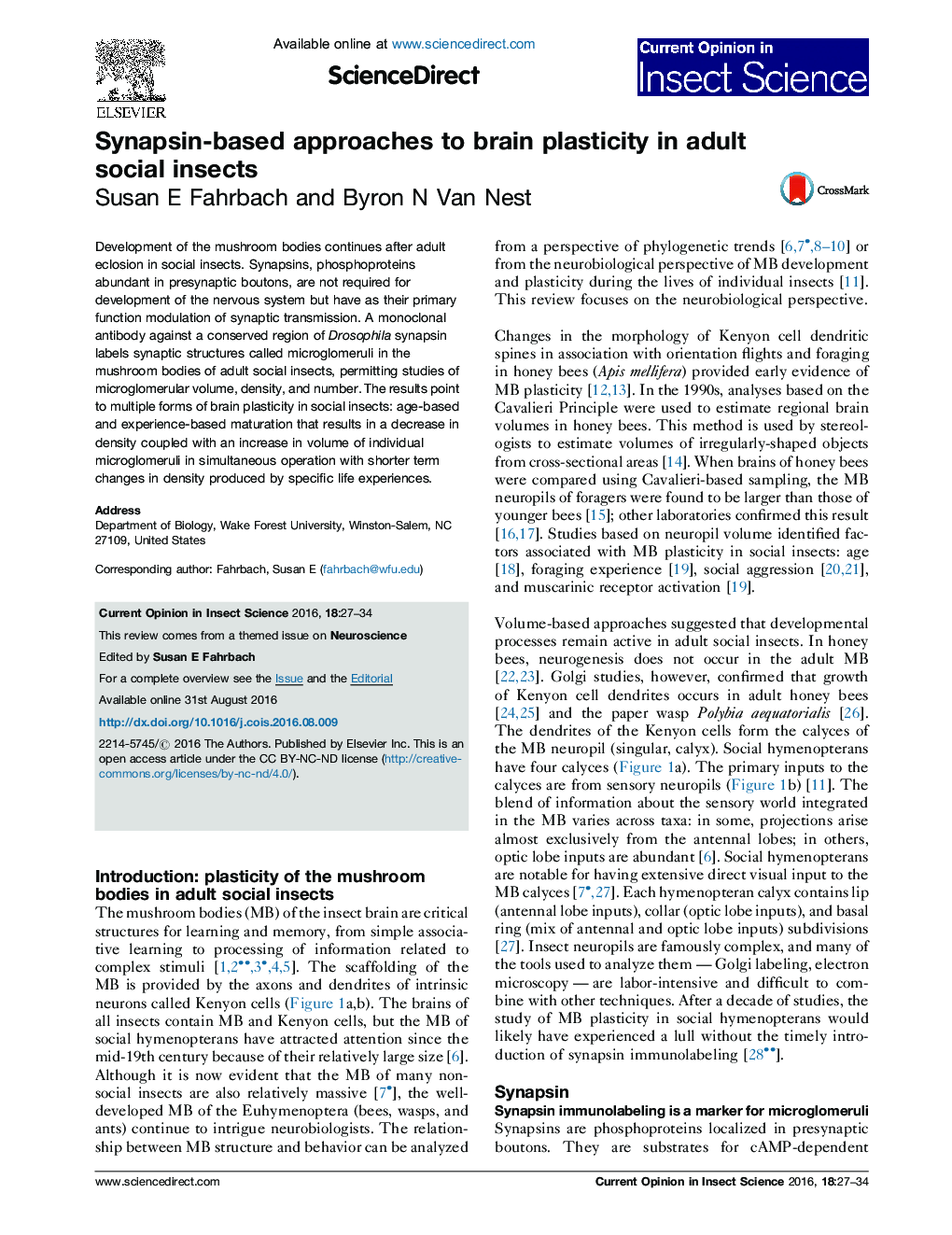| Article ID | Journal | Published Year | Pages | File Type |
|---|---|---|---|---|
| 6373980 | Current Opinion in Insect Science | 2016 | 8 Pages |
Abstract
Development of the mushroom bodies continues after adult eclosion in social insects. Synapsins, phosphoproteins abundant in presynaptic boutons, are not required for development of the nervous system but have as their primary function modulation of synaptic transmission. A monoclonal antibody against a conserved region of Drosophila synapsin labels synaptic structures called microglomeruli in the mushroom bodies of adult social insects, permitting studies of microglomerular volume, density, and number. The results point to multiple forms of brain plasticity in social insects: age-based and experience-based maturation that results in a decrease in density coupled with an increase in volume of individual microglomeruli in simultaneous operation with shorter term changes in density produced by specific life experiences.
Related Topics
Life Sciences
Agricultural and Biological Sciences
Agronomy and Crop Science
Authors
Susan E Fahrbach, Byron N Van Nest,
